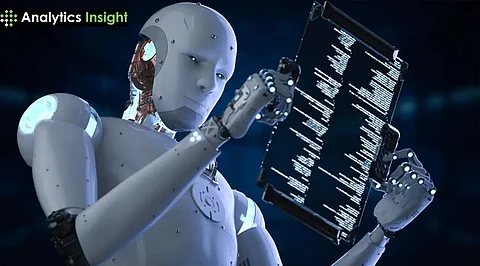

The quest to halt or reverse aging has long captivated human imagination. By 2032, could artificial intelligence (AI) make this aspiration a reality? Futurist Ray Kurzweil, renowned for his forward-thinking predictions, believes so. He envisions a future where AI plays a pivotal role in achieving "longevity escape velocity," a state where life expectancy increases more than one year per year, effectively outpacing aging.
Ray Kurzweil, a prominent inventor and director of engineering at Google, has a history of accurate technological forecasts. In the 1990s, he predicted the rise of portable computers and wireless technology by 2009, a foresight that materialized with the proliferation of smartphones and Wi-Fi. Extending his predictive lens to human longevity, Kurzweil suggests that by 2030, advancements in nanotechnology and AI will enable humans to achieve significant life extension, potentially leading to immortality.
Central to Kurzweil's hypothesis is the integration of AI with human biology. He posits that AI-driven technologies, such as nanobots, could repair cellular damage, combat diseases, and enhance bodily functions, thereby mitigating the effects of aging. This convergence of technology and biology is anticipated to usher in an era where aging becomes a manageable condition rather than an inevitable decline.
Recent developments underscore AI's transformative potential in longevity research. In 2023, researchers from Harvard Medical School, the University of Maine, and the Massachusetts Institute of Technology (MIT) employed AI algorithms to screen over 800,000 molecules, identifying compounds with promising anti-aging properties. This approach not only accelerates the drug discovery process but also enhances the precision of targeting age-related ailments.
Further illustrating AI's impact, a study highlighted by Phys.org in May 2023 detailed how AI identified new senolytic drug candidates. Senolytics are agents that selectively eliminate senescent cells—cells that contribute to aging and age-related diseases. By leveraging AI, researchers can expedite the identification of such compounds, paving the way for therapies that promote healthy aging.
The intersection of AI and biotechnology has led to significant strides in understanding and potentially reversing aging. A notable breakthrough from Harvard and MIT researchers involved the discovery of anti-aging drugs using AI. By training AI models to analyze vast datasets, scientists identified compounds capable of rejuvenating cells, thereby extending their functional lifespan.
Moreover, AI's capacity to process and interpret complex biological data has facilitated the development of personalized anti-aging interventions. By analyzing individual genetic and epigenetic information, AI can recommend tailored therapies, enhancing their efficacy and minimizing potential risks.
While the prospects of AI-driven anti-aging therapies are promising, several challenges persist. The complexity of human biology means that translating laboratory successes into safe and effective human treatments requires extensive research and clinical trials. Additionally, the ethical implications of life extension, such as overpopulation and resource allocation, necessitate careful consideration.
Furthermore, the accessibility of such advanced treatments raises questions about equity. Ensuring that breakthroughs in longevity are available to all, rather than a privileged few, is crucial to prevent societal disparities. As noted in discussions about the societal impact of life-extending technologies, addressing these ethical dilemmas is essential for harmonious integration into society.
The convergence of AI and biotechnology heralds a new frontier in the fight against aging. Ray Kurzweil's predictions, supported by recent scientific advancements, suggest that by 2032, AI could play a central role in halting or even reversing the aging process. While challenges remain, the trajectory of current research offers a hopeful glimpse into a future where aging is no longer an inexorable fate but a condition that can be managed, and perhaps, one day, overcome.
